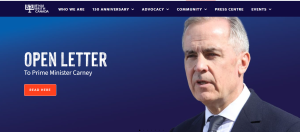 TORONTO — A $10-million grant to Baycrest from the Ontario government is earmarked for the creation of the province’s first Centre for Brain Fitness.
TORONTO — A $10-million grant to Baycrest from the Ontario government is earmarked for the creation of the province’s first Centre for Brain Fitness.
One of the goals of the centre, which will be part of Baycrest, is to develop and commercialize a range of innovative products aimed at improving the brain health of Ontario’s aging population.
Ontario Minister of Research and Innovation John Wilkinson, left, tries out the “brain fitness tablet” with Dr. Jon Ween, medical director of the Louis and Leah Posluns Stroke and Cognition Clinic at Baycrest. Ween hopes the tablet, still in development, will be a standard assessment tool in doctors’ offices in five years. [Gary Beechey photo]
In announcing the grant at an April 7 press conference held at Baycrest, John Wilkinson, minister of research and innovation, said research talent is one of the province’s greatest strengths. “Our government is proud to support Baycrest and its invaluable work, which is already leading to the discovery of important new tools and approaches to treating brain diseases associated with aging,” he said.
Mike Colle, MPP for Eglinton-Lawrence, where Baycrest is situated, said the grant demonstrates the government’s “commitment to research and innovation as a means of building a stronger, healthier Ontario, by both improving our quality of life and health care here at home, while producing new tools for diagnosis and treatment that we can market to the world.”
Products to be developed at the centre will be aimed at early detection and prevention of neurocognitive decline, repair and rehabilitation of function in response to disease, and maintenance of cognitive abilities to help aging adults live independently as long as possible.
A new diagnostic tool – called a “brain fitness tablet” – displayed at the press conference provides simple and rapid measurements of memory and processing in people who have had a stroke.
“What the blood pressure cuff did for cardiac assessment in the 20th century, this tool – about the size of a laptop computer – has the potential to do for brain health in the 21st century,” Baycrest said in a statement.
Dr. Jon Ween, medical director of Baycrest’s Louis and Leah Posluns Stroke and Cognition Clinic, who developed the diagnostic tool, said he hopes it will be widely available in doctors offices in five years. “It allows early detection of cognitive impairment so patients have the benefit of [quick] intervention.”
Dr. Donald Stuss, director of Baycrest’s Rotman Research Institute, said that loss of memory is the No. 1 health concern for older people. “Through this centre, we will generate knowledge into new diagnostic tools.
“Our cognitive assessment will transform [lives.] If we cannot detect it, we cannot intervene,” he said.
He said, however, that diagnosis is just one step. “Brain function is critical, and we will develop products to maintain and rehabilitate. Today’s collective dream of making aging better is becoming our future.”
Dr. Tony Melman, chair of Baycrest’s board, said the Centre for Brain Fitness could save the Ontario health-care system an estimated $1 billion annually by delaying the institutionalization of one-third of dementia patients for one year.
He added that the grant to help create the centre will, in turn, help Ontario be a player in the “global brain fitness market,” which is expected to reach $4 billion by 2010.






